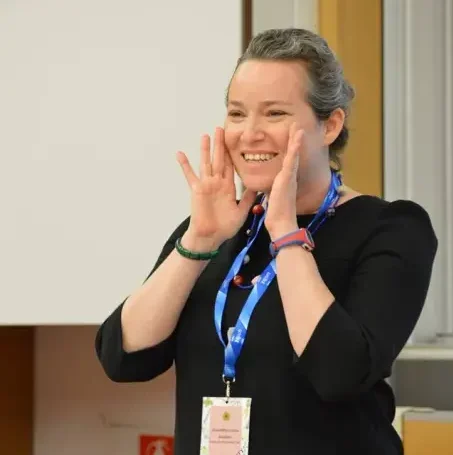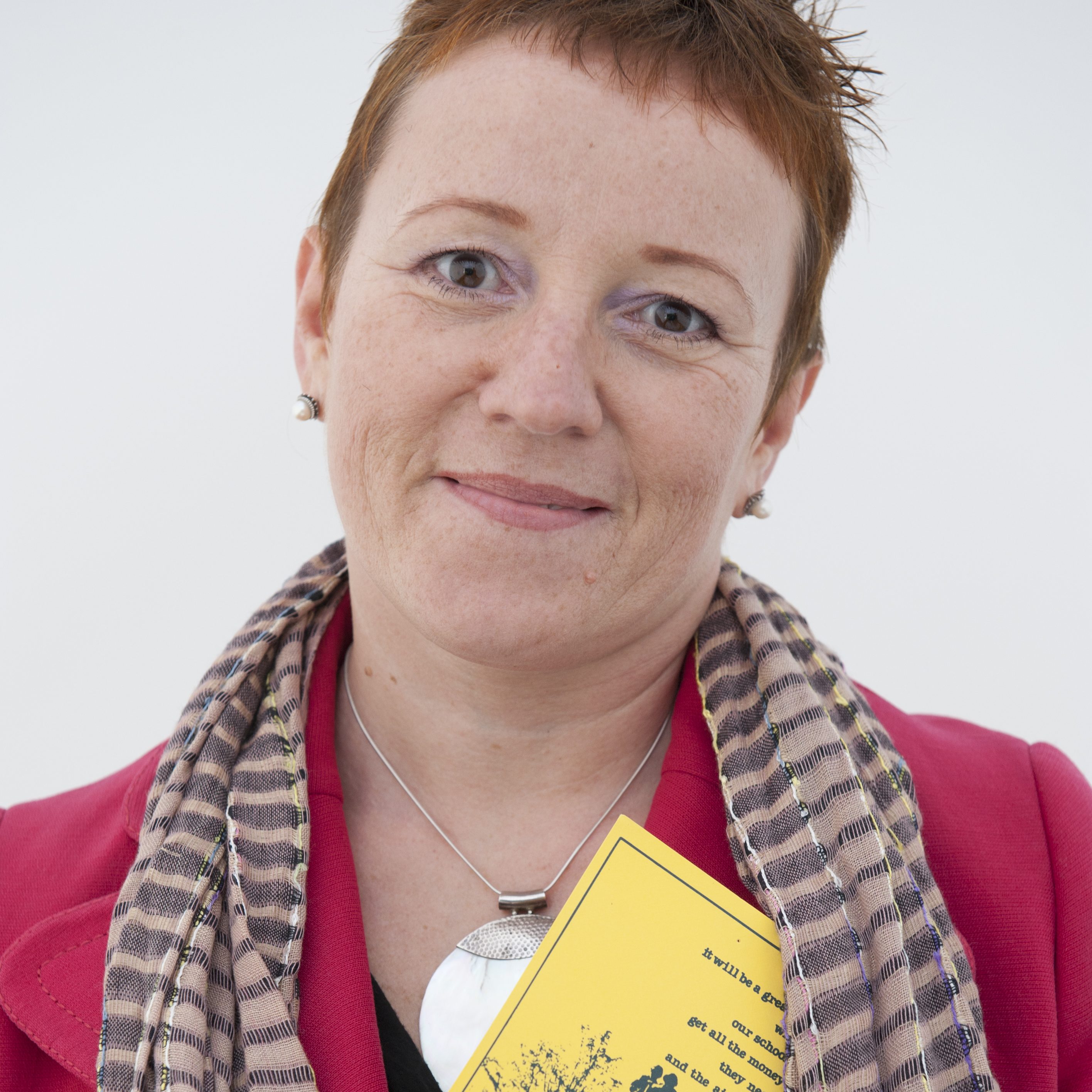In this post we welcome a discussion by guest authors on the recent volume Batman Saves the Congo: How Celebrities Disrupt the Politics of Development, by Alexandra Budabin and Lisa Ann Richey (University of Minnesota Press, 2021). The authors appreciate the critical feedback from Johanna Jarvela on this discussion.


This book analyses what celebrity strategic partnerships are doing to disrupt humanitarian space by focusing on the relationships celebrities create with other donors, implementers, and Congolese recipients. The main argument is that while celebrity strategic partnerships claim to disrupt the usual politics of development and humanitarianism, they instead lay bare the practices of elite networking, visibility, and profitable helping that characterize these fields of North–South relations.
Celebrities like Ben Affleck accompany the increasing presence of other private actors in international politics with the ability to attract new funding, ideas, and support to establish their own organizations. These celebrity-led organizations have impacts, both material and representational, on the other actors in the development and humanitarian space and, even more consequentially, on the beneficiaries themselves. A deeper understanding of these new actors and alliances contributes to contemporary discussions across scholarly fields. First, international development scholarship would suggest that in these new and “disruptive” celebrity strategic partnerships, celebrity humanitarians on the ground might have acted differently from experienced, old-fashioned, traditional donors and implementers. Instead, our book shows how celebrities and their partners (corporations, capital asset management firms, and philanthropists) are elite players in an elitist field who disrupt very little. Second, studies of celebrity politics would lead us to expect that the institutionalization of a long-term investment and collaboration in celebrity strategic partnerships would make them more accountable than the more commonly found short sighted celebrity do-gooding. Our book explains why they are not. Finally, understandings of global politics might have suggested that celebrity strategic partnerships’ ability to bring together a broader range of shareholders to direct the enterprise of development would have led to better representation of Congolese voices among them. This was not the case; instead, the post democratic politics of North–South relations was cloaked in the attractive guise of partnership. While celebrity strategic partnerships claim to disrupt the usual politics of development and humanitarianism, they instead lay bare the practices of elite networking, visibility, and profitable helping that now characterize North–South relations. This short intervention is excerpted from a panel from the International Studies Association in 2022 around the book, Batman Saves the Congo: How Celebrities Disrupt the Politics of Development (Budabin and Richey 2021).

Neofeudalism, Batman, and White Saviorism
The title of your book is a wonderful coinage because it’s so evocative of the white man’s burden, the superhero saving the Congo—the Congo stereotypically being “the darkest corner” of the so-called “dark continent.” It resonates with celebrity humanitarianism’s roots in colonialism and empire, and I think it’s evocative as well of how popular culture—how Hollywood—is so imbricated today with humanitarianism and global charity—which is to say that Hollywood is so imbricated with questions of domination and imperialism.
I also appreciate as well that you chose to focus in your book on the case of Affleck in the Congo. I think you’re quite right in saying that it’s a specific case that reveals much about the neo liberalization of development, through celebrity strategic partnerships. It’s another example of how they can reveal and reflect a lot about the universal kind of like a prism that helps illuminate the universalization of global capitalist political and cultural economy, as well as the increasingly post-democratic landscape in which elites help propagate the privatization of development, while remaining largely unaccountable. And we shouldn’t forget that Batman himself is a masculinist and a highly unaccountable figure: it’s no mere accident that Affleck-as-Batman is also Affleck-as-elite-white-neo-colonial-patriarch-saviour. I would even go so far as to say that Affleck is more Batman than Batman—he reinvents Batman for the modern age, teaching Batman how to be a superhero in the age of the global: batmobiling into the Congo, with the mission of saving people by bringing them the “gift” of market capitalism, directing them on how to revitalize Congo’s coffee sector, as you’ve shown in your book.
Read more: Batman, White Saviourism and International Politics: A ColloquiumBut I also wanted to reflect on your book alongside some of the recent work on neofeudalism that I have been reading, because I think there are some important parallels. There are those like leftist critics, Jodie Dean, but also drawing on rightist libertarians like Tyler Cowen and Joel Kotkin, who argue that we are moving, or indeed we have already moved, away from neoliberalism towards what they call “neofeudalism”: an age associated with extreme inequality, generalized precarity of labour, and monopoly corporate power, under which a property-less underclass services the needs of the highly privileged as child and elder care workers, trainers, cleaners, cooks, and, in our case, landless peasant coffee growers. I think these authors are mainly thinking of the “platform economy” and “gig economy,” under which a handful of mainly tech companies (Apple, Google, Uber, Airbnb, etc.) have become even richer and more extractive by turning their owners into billionaires on the basis of the cheap and precarious labour of their workers, the free labour of their users, and the tax breaks given to them by cities and states desperate to attract employment. But there’s certainly a parallel with celebrity charity in the way that you describe it in the book in relation to poor coffee growers in the Congo—servicing the needs of a global network of so-called “partners”: celebrities, corporations like Starbucks, financial companies, USAID, NGOs like ECI, and so on. Unlike the capitalist whose profit rests on surplus value generated by waged workers through the production of commodities, here the neo feudal lord extracts value through monopoly, coercion, and rent, and in our case through celebrity charisma and influence. So, for example you write about “the convening power of the celebrity humanitarian, who drawing on political capital, is able to promote the partnership to both mainstream and elite circles.” And all of this, of course, happens in the context of war-torn Congo, where violence, coercion, and dispossession are integral to people’s lives and livelihoods. So overall, a situation in which you have a handful of overlords and millions of impoverished peasant farmers, or as Jodie Dean puts it, “a few billionaires, a billion precarious workers.” I think to see it in this way makes us reckon with the extreme social apartheid of our time, the fact that celebrity multi-millionaires and corporate billionaires amass trillions of dollars of assets, walling themselves into their safe enclaves (or “batcaves”!), while millions become war and climate refugees and hundreds of thousands are reduced to “bare life.”
The point being made by Dean and Kotkin is that, just as feudal relations persisted under capitalism, so do capitalist relations of production and exploitation continue under neofeudalism, but the big difference are the non-capitalist dimensions of production that exist today: forms of expropriation, domination, coercion, dispossession, of which I would count celebrity charisma and influence (i.e., what in this case we might call “batmanization”!).
Another feature of neofeudalism is what is referred to as “hinterlandization.” This is a reference to the extreme spatialization—geographic forms of apartheid—associated with neofeudalism: protected and safe centres that exploit/live off agriculture, mining, and desolate hinterlands, of which much of the Congo is an extreme example. And in the “hinterlands,” this implies the loss of the ability of people to lead liveable lives.
Finally, like under feudalism of old, neofeudalism is characterized by the centralization of power, yet one that masks as localization. The “partnership approach” that you talk about in your book is precisely that, in my view: as you say, it “pretends to encourage local participation and decentralization, but all the key decisions are centralized for the benefit of many corporate actors.” Rather than meaningful and equal sharing, these “partnerships” in fact reinforce hierarchy and inequalities. Here neofeudalism intensifies the neoliberal strategy of undermining democratic authority and the authority of the nation state over its economy, in the interests of advancing global trade, finance, and corporate power, with celebrities as their handmaidens.
Accountability
As the book roughly alludes to, I did have a front row seat to the circus – I was conducting dissertation research in Goma and Bukavu from 2005-2007 and have gone back many times since. And I really would mark the shifting point as once Lisa Shannon, this woman who decided to run a marathon for the Congo and went on Oprah. When she went on Oprah, everything changed and the circus came to town – and the circus has largely since departed, which I think the book does a good job at critiquing the reasons for. But I guess my comments here will be offered in the spirit of just really appreciating the book and thinking about what this means in the Congolese context, what this means in relationship to other literature on NGOs, and what we might think about as an alternative or positive way forward.
My first question is on the choice of focusing on celebrities instead of foundations. It seems to me that celebrities are useful conduits for foundations that want to work in the field of development, but we’ve also seen pretty good evidence that they’re not necessary, and I’m thinking here directly about the Buffett Foundation. Yes, it’s engagement with the ECI was important, especially for ECI’s survival, but the Buffett foundation has also been deeply involved in other initiatives in Congo and other parts of the region, that they really did not draw the celebrity angle for, they really did not pull in celebrities and I’m thinking here of the efforts to militarize conservation in Virunga national park, the efforts to hunt down Joseph Kony in Central African Republic. Where the work of the Buffett foundation and along with the Bridgewater foundation out of Texas, were sort of directly funding military activity in some ways buying equipment for the Ugandan People’s Defence Forces, like night vision glasses and even providing helicopters, and other expensive things to try to hunt down a warlord.
Foundations are already an expression of this accountability problem – to whom are foundations accountable? When Howard Buffett supplies the Ugandan army, not with lethal material, but with material that is nonetheless used for lethal purposes and then the Ugandan army goes back and uses those skills that it has developed and the equipment it has acquired in a domestic context to suppress political speech, who is accountable?
Given the extremely fragile state context that ECI and other organisations work in, in a place where development has never been accountable or democratic in any way, reaching back to misguided notions of “development” in the colonial period, it has never been democratic. What else works? And is there a danger of perfect becoming the enemy of the good? We have a lot of evidence that traditional development models fail in the DRC all the time, and lead to tremendous waste and are also completely unaccountable. For example, the Tuungane project, which was a series of community-development initiatives financed by DFID and implemented by the International Rescue Committee, that attempted to get communities to participate in deciding how to spend the grant for the public good together. Anyone who knew Congo who looked at the design of the original Tuungane project could and did tell the folks who were working on it “this is going to fail”, and there was a control trial and it showed absolutely no results. That was a 150 million pounds of British taxpayers’ money down the tube, gone, for nothing. It turned out that the process to get communities to work together, which had the goal to build accountability between local leaders and the community was little more than facilitated manipulation, and communities did not experience it as a process of building accountability.
What they experienced was— ‘here’s some white people coming from outside, they will give us some money to play along with their game and fill out their scorecard and do all those things and we will get a construction project out of it.’ And this had to do with the construction industry as well, because it turned out that local suppliers were not prepared to provide this level of service across communities all at once. But I’m wondering if the problem with this sort of development a lack of accountability is – I can’t think of any NGOs that are accountable to the Congolese. And groups that waste resources, implement experimental projects, do all kinds of bad work and are unaccountable to anyone who is affected when their projects fail, have negative consequences. Maybe there’s an argument to be made that traditional NGOs are at least accountable to governments in the Global North, and that because they are non-profit there is something less insidious about what they’re doing.

Teaching, Race and Gender
Your book demonstrates that this Batman is no hero. My understanding is that many in the public would agree with that sentiment in relation to the movies, but the idea of “saving” is often fraught, complicated, and never goes like in the movies. I must say that I love the title, and I could even see a playful subtitle that simply asks, “or does he?”
Overall, I find this book to be very teachable, and my comments here are largely reflecting on how it might be used or received in an undergraduate classroom. First, so many concepts are clearly identified, contextualized, and explained. For example, the emphasis on the components of neoliberalism lays the groundwork for students on how these terms are going to be contextualised and used throughout the book. Further, for those of us, like me, who teach in interdisciplinary programmes, the authors highlight the input to IR from a variety of disciplinary fields – from geography to anthropology to political economy and communications, and more. In terms of supporting student research, there is a nice blueprint in the appendix on the research methods— clearly organized and nicely layered by theme.
Specifically in terms of global development, this text is a great starting point to consider the ideas of success and failure of global development interventions. It lays out the emphasis on capital, money, and profit in determining what ‘development’ success is. We often define both the seriousness and purpose of intervention through the money and resources that are organized around it, and we understand success through the idea of profit and access to markets. This system of development “progress” and success, as Batman Saves the Congo shows, is not disrupted or changed but constantly recreated, and our notions of success are inelastic, supporting the recreation.
More subtly, the book also addresses issues of race and gender, though I do think they could be emphasized more explicitly. Focusing on race, of course, Western views of the Global South are not just filtered through racial overtones but are absolutely raced themselves. We cannot forget that the first journal within international studies or international relations was the Journal of Race Development, and this case follows from that long history; “How do we develop the other races?”. Throughout the book, the racial dynamics of this development intervention are hinted at by the concept of white saviourism, the notion of elitism, and the visibility of the outsider and an American running this intervention.
As I have alluded to, the idea of disrupting the embedded industry of global development is seemingly futile. These “new” alternatives simply end up being part of a long continuation of constant colonial and unequal power dynamics which are simply part of how development and North-South relations work. And we, as scholars and students alike, are quick to critique and then dismiss, in a constant search for perfection. Yet, I tell my students that at times we need to embrace the grey. The idea that we can have public policies that are 100% good is wishful at best – there will always be winners and losers and we always need to step away from the demand of seeming perfection. Simultaneously, we are all products of the same society that raises up the white saviour and raises up this idea of doing good, and we can’t expect celebrities to be exempt from that. In many cases, celebrities and other do-gooders may just reflect ourselves, and how can we expect any other? Perhaps then, the book may also serve as an entry way for students to the process of self-reflection, supporting a re-entry to North-South relations with greater awareness and humility.

Andy Cooper on Complex Identity and Other Celebrity Humanitarians
We have been working on celebrity politics for a long time and the trends have been exactly what this book suggested: towards strategic management, towards certainly a lot more of an elitist perspective, and certainly towards a sense of unaccountability. But what is fascinating to me is how multidimensional, multi-identity many of these celebrities are. So, if you look back to 2014, you see Ben Affleck, kind of coming out on some of these sensitive issues about Islam, about identity, about the Middle East. He was involved in the Michael Moore project on Fahrenheit 9/11, so there’s two sides to his work. I mean, I agree that the dominant side is exactly the one that you suggest, but there is this other side – and I’m wondering if there’s something determined by whether it’s strategic management he moves in one direction, and then he gets pushed back, and perhaps that he worries about some components of his career, if he’s seen as too adversarial, too kind out there, and then he comes back to relatively safe, conformist grounds.
Race has also been mentioned, and the only leading black activist is found in a footnote, Harry Belafonte. African American celebrities deserve more consideration, even if it’s to try to probe why they’re not in the mix, why they’re not as central. I think maybe there are reasons for this. One example is from the kind of chumminess, the old boys’ network, and celebrity network. Don Cheadle did the voice overs of a book on Leopold’s Ghost back in 2006 which leads to a puzzle: if he can do voice over of a hard-hitting award-winning book, then what else is he doing or not doing, in terms of the Congo? Looking back to his work with George Clooney on Darfur, what sort of experience was this for an African American celebrity? As the Robin to the Batman at the time? Was he seen as a follower or an add-on to sort of give some credibility and legitimacy to the white celebrities who remained in the forefront?
And this is a whole other question, getting into the point of celebrities from the non-English speaking world, not just in terms of race but in language. One example is Shakira, from the Latin American, Colombian world, where Shakira was not only crucial to some of Howard Buffet’s activities, but to draw in people who were reluctant to give in money. Carlos Slim, being the real exhibit. Seeing a lot of this activity upfront over the years, maybe thinking celebrities are fading away, if you have a celebrity in your pocket, cohort, entourage it does bring people in. Going back to summits for presidents and prime ministers of secondary countries, if a Bono or a George Clooney turns up, who are the leaders of big countries going to sidle up to, who is the media going to sidle up to, it’s not going to be leaders from Italy or Canada etc. It’s going to be the cohorts, delegations around the celebrities. There is celebrity fatigue to some extent, but it is still an attractive component in that elite circle, there’s a lot of insecurity in that circle – people who made their money and want to do something else. Just because you’ve been famous or successful in one aspect of life doesn’t mean you have a huge amount of self-confidence in other dimensions of life. There’s a real psychological aspect here that must be teased out, tackling all the rationalist institutionalists because without it, we have a totally misleading analysis of how global politics and institutions work.

Catia Cecilia Confortini on Co-optation and Complicity
The bricolage methodology was able to reveal this complex interweaving of narrative, political economy, underlying messages, and logics of neoliberalism. As a feminist peace scholar, I am especially concerned with the normative aim to transform systems of power, planet, and people. We are also concerned about the radical restructuring of society. Your methodology covers the ways in which celebrity strategic partnerships are a long way from doing that, and I also appreciate how teachable the book is.
For me the first takeaway from the book is about the resilience of the system of business and development in a neoliberal age – about the co-optation of the language of empowerment, disruption, and transformation for neoliberal or feudal purposes rather than democratic purposes. And the second one is a direct reflection of our own complicity as IR or peace scholars: how come our research has been co-opted so easily?
Affleck and ECI present themselves as innovators with technocratic solutions, a modern ideological ethos, a neoliberal, perhaps even neo feudal state (in Ilan’s words), in its reliance on technocratic logic and politics, and a narrative on democratic ethos and politics. The book shows how cleverly ECI co-opts the rhetoric or language of from the critical nexus of peacebuilding, development, and humanitarianism and also the language of feminist literature. And through this, the book shows what ECI really is, a continuation of neoliberal logic of development and humanitarianism. Michelle Alexander in her famous book The New Jim Crow, talks about the system of social and racial discrimination in the US that began with slavery and has continued in the US, and continues to this day through different forms, and that now manifests itself in mass incarceration. Similarly, what your book shows, by starting with your genealogy with early celebrity humanitarianism (Morel and The Congo Free State), that the business of neoliberal development continues even as the language utilized may change.
To add a bit more on the co-optation of language: the literature in peacebuilding and development has emphasized the strengths of bottom-up peace building (the work of Pamina Firchow and Roger McGinty, Laura McLeod, and Sévérrine Autesserre, to name a few). And celebrity humanitarianism co-opts this literature’s lingo: for example, locally led initiatives, transformation, long term impact, to name a few. Your book exposes in fact how, despite the lingo, these partnerships miss accountability to the locals, so these interventions are not really community led. They talk about centring alternative narratives, embracing multiple voices, and your study exposes how really that is not the case.
When Affleck talks about long term involvement, it is in fact a short-sighted view of long-term. I don’t think that less than ECI’s less-than-10 years life is long term involvement. At least Elise Boulding, one of the founders of the field of peace studies, talks about “200-year present.” We need to think of long-term in this sense, what ECI is doing is not long-term.
ECI labels their work as transformation and disruption, but disruption is framed as proposing win-win solutions. That is not disruption at all: neoliberal development relies on the exploitation of some at the expense of others – there can be no win-win solutions within its logic. This is also happening in peacebuilding. For example, anthropologist Susan Ellison, talks about dynamics of responsibility in a different context, in Bolivia, where communities are seeing the language of conflict transformation imposed on them and being co-opted into a practice that is pushing not for the transformation of the system that generated the conflict (and that is external to the community), but rather to the transformation of the community itself, its cultures and practices, as if they were at the origins of violent conflict.
Then again, the language of women’s empowerment and feminism is being co-opted, with messages that portray women as victims (not agents), but also using the victimization of women for ends that benefit donors, interveners, and business as usual and boost the respectability of the companies.
The second takeaway is our imbrication in it: I mean we are in it. This is not a critique of the book, but more for us as scholars: How did this language that we have, that we use to express our quest for a different system of governance in global affairs, of relating to each other. How did it get co-opted so easily? Maybe our research is not so obscure that it gets co-opted, maybe it also has to do with how we position ourselves, academics in a neoliberal academia, how we must navigate this system and must make our research visible. What worries me is that critical research, research that is supposed to disrupt power, can be also complicit in the neoliberal project via the neo liberalization of the academy.

Annika Bergman Rosamond on American Charismatic Narratives
This book is a page turner, touching on a range of topics pertaining to celebrity diplomacy, humanitarianism, and advocacy. It is also an invaluable contribution to scholarship on celebrity-driven and endorsed business ventures as well as giving the reader a sense of Ben Affleck’s ethical ambitions beyond borders. Although the book does not centre on the individual charisma of Ben Affleck, rather engaging with the structures of celebrity humanitarianism, it inspires readers to reflect on the role of individuals in development, security, and global politics.
The book also invites readers to engage with the narration of celebrity humanitarianism across textual and visual contexts. The reader is presented with a thoroughgoing exploration of a range of celebrity and development narratives, as well as the ethical considerations and gendered and neoliberal logics that undergird such stories. The authors compare such narratives by bringing attention to variations and similarities across texts and visuals that centre on the brand, stardom, persona, and activism of Affleck. While I welcome the explicit focus on narratives throughout the book, I wonder whether it might have benefited the clarity of the book if the two authors had reflected more on the ways in which the stories were selected and what images and texts were left out from the book? By locating the study of celebrity narratives more firmly within narrative theory and analysis, not least feminist contributions (Wibben 2011), readers would have acquired a stronger sense of the methodological choices that inform the book. Annick Wibben notes that there are external and internal narrators; the external narrator does not refer to herself as a character in the story while the internal one does. Employing this logic, the authors of the book would have been able to capture a wider range of voices, including those of the people that Affleck seeks to emancipate through his activism and business ventures. This seems important since Ben Affleck himself professes to want to work closely with the people of Congo in a spirit of solidarity. Here I might want to ask the authors what external testimonies they came across in researching their book, and what they made of those voices? In other words, what images and visuals are excluded from Affleck-centred narratives, and what are the ethical implications of such silencing?
Another question that we might want to consider is what might have happened had Ben Affleck acted on his interest in the Middle East? Had it changed the character of his activism had he turned himself into an expert at Middle Eastern politics? Perhaps more relevant here is the question whether the book had evolved in another fashion had Middle East been its primary geographical focus?
The book could also be read as a contribution to feminist scholarship that critically takes on board the idea that women in the global south necessarily stand to benefit from the neo liberalization of aid? Do celebrity-induced business opportunities automatically lead to a sense of emancipation and empowerment? Feminist scholars of the international political economy have noted that transnational business feminism does not automatically transform individual lives in the global south. Indeed, the authors of the book put forth a compelling critique of business as a route to empowerment and healing. Indeed, the exposure to gendered violence, poverty and harm cannot be healed by business logic alone. The book also provides a point of departure for interrogating the gendered effects of masculinist protection in global politics, not least the ways in which white saviour logics prevail in celebrity activism, diplomacy, and humanitarianism. Here I think more reflection on such masculinist protection would have benefited the feminist ambitions of the book, not least since Affleck himself appears to assign protection traits to his brand and persona. In many ways Affleck’s humanitarianism and emancipatory business ambitions are in line with the gender binaries that undergird global politics, a logic that tends to assign protector to white privileged men and the role of protected to non-western vulnerable women.
Finally, the book speaks to scholarship on popular culture and world politics and development by showing how popular culture helps to constitute knowledge and ethical consideration. But how does celebrity humanitarianism translate across contexts? Would this story have been fundamentally different if we weren’t dealing with an American celebrity going beyond borders and “doing good”?
Response: Lisa Ann Richey on Selling Authenticity and Values that Feel Good
With gratitude to our critics for their engagement with the text, there are some interesting things that I will respond to briefly. Annika asked a question from the hypothetical case: “What if Affleck had actually gone to the Middle East?” Or as we provocatively say in our work: “What if he would’ve gone into US labour rights?” as Affleck actually did back in the day, something on which he could’ve claimed some “genuine” expertise and authenticity. I wrote an article in African Affairs (Richey and Christiansen 2018) about Afropolitanism, and one of the things we found out when we did this study, which is looking at Danish celebrity humanitarians – so definitely not Hollywood A-listers— is that the modality of the celebrity only works if you’re not too close. So, celebrities must have this necessary distance to make the entire sleight of hand function, to be able to produce this believable imaginary, and this owes a lot to Ilan’s work (2020) understanding the psychoanalytical side about why celebrity politics becomes so powerful. It is completely irrational, and Andy I’m really looking forward to your forthcoming work drawing on the role of individuals and taking issue with rational choice-making to build on this. But then we need to understand how celebrity politics work does, what is that power—the power of race, the power of class, the power of all those old school things that all our great grandparents started talking through decades ago in trying to analyse how power works. There hasn’t been any new thing, but what has happened is that celebrities are able to do this sleight of hand so effectively. It feels right.
Catia, you talk about how easily these discourses, which are genuinely progressive, are be co-opted. I’m in South Africa right now, and I just saw the most beautiful chandelier yesterday, in a fancy art gallery, made from the fence that contained Robben Island. I don’t know where to start with this: with the biblical quotations from which they take a reference, with the fact that it was recovered by some well-meaning white person in South Africa who’s now selling it at an exorbitant profit because everyone really wants to buy into some of the power that got people through in Robben Island. Those are powerful moments, and that power is personal.
Laura asked about why do we not study foundations—why actors? As Andy pointed out as one of the first scholars of celebrities in international politics (2008), what’s fascinating about celebrities is that they are both individuals and institutions, all in one, and all the good media scholars have taught us how to think about them as ‘both, and.’ They’re basically both – exploited and exploiting themselves for profit in an interesting way that other new actors and alliances in humanitarianism can’t do. So, that’s what for me is still interesting in celebrity humanitarianism.
Whether or not Affleck per se is a particular kind of persona, as Andy and Annika have pointed out, is worth discussing. We (Richey and Brockington 2020) looked at the seven tropes of celebrity humanitarianism, and Affleck is interesting because he is a bit harder to type. He is a more interesting outlier, someone who absolutely all the people who worked with him—and we did interview quite a lot of people who had worked with Affleck— take seriously. I mean, he’s serious, he’s smart, he’s not just some pretty face. And there’s no reason to think he doesn’t want to do good any more than anybody else. But the apparatus of this kind of elite politics doesn’t even allow for accountability or for celebrity humanitarianism to be successfully done differently.
No one would really disagree with the kinds of ‘helping’ values being promoted by Affleck’s organisation promotes. Yet in practice, what we found in our other work on the coffee, (Richey and Ponte 2021) was that there were already organisations working in Eastern Congo with the same coffee cooperatives doing basically a better job than ECI, Buffet, Starbucks, and USAID. And perhaps it was fine when they came in, of course, but they were not preparing those cooperative for surviving, and on the ground, we had lot of negative perceptions about how they came in, playing local politics in ways that were not very helpful. Laura asked, are we sure is it better than nothing? Well, I don’t think nothing is really the alternative – and that’s what often gets sold to us that there’s ‘nothing’ in the Eastern Congo, and that is quite frankly rubbish. There has long been this kind of humanitarianism going on in Congo in general and in Eastern Congo in particular. This is nothing new per se, as our historical work in the book documents. However, it is the way celebrity humanitarianism is being reconfigured and sold is ‘new’ that makes it interesting, and that’s what we hope makes it worthwhile reading a whole book about Batman.

Lisa, Could you look into how to add my entry please? Best wishes Annika
Dr Annika Bergman Rosamond Associate Professor/Docent Department of Political Science Lund University Director of the MA in Global Studies, Faculty of Social Sciences, LU. Outgoing Section Chair of Feminist Theory and Global Studies, ISA.
New articles: ‘Music, mining and colonisation: Sámi contestations of Sweden’s self narrative,’ Politik, Vol. 23:1, 2020.
Swedish Feminist Foreign Policy and “Gender Cosmopolitanism”, Foreign Policy Analysis, issue 1 2020.
‘The Case for Interdisciplinary Crisis Studies’ (med M. Hamza, J.Hearn, T. Gammeltoft-Jensen, H. Rydström & V. Ramasar) Global Discourse, 2020 (online first).
‘Celebrity global motherhood: Maternal care and cosmopolitan obligation’ , Troubling Motherhood Maternality in Global Politics- (Hall, Weissman, & Shepherd, eds.), Oxford: Oxford University Press, 2020.
‘Feminist Foreign Policy 3:0: Advancing Ethics and Gender Equality in Global Politics’ , special issue on Ethics and Foreign Policy, (with Karin Aggestam) SAIS Review Of International Studies 39:1 2019.
‘Re-politcising the Gender-Security Nexus: Sweden’s Feminist Foreign Policy (with Karin Aggestam) European Review of International Studies 2018.
‘Theorising Feminist Foreign Policy’ (with Karin Aggestam & Annica Kronsell), International Relations, 2018 (online).
‘Political Legitimacy and celebrity politicans: Tony Blair as Middle East envoy 2007-2016’ (with Michelle Pace) , Middle East Critique, 2018.
‘Cosmopolitan Militaries and Dialogic Peacekeeping: Danish and Swedish Women Soldiers in Afghanistan’ International Journal of Feminist Politics, (with Annica Kronsell) 2018.
LikeLike